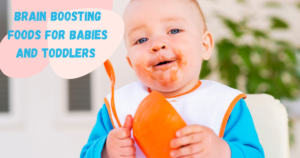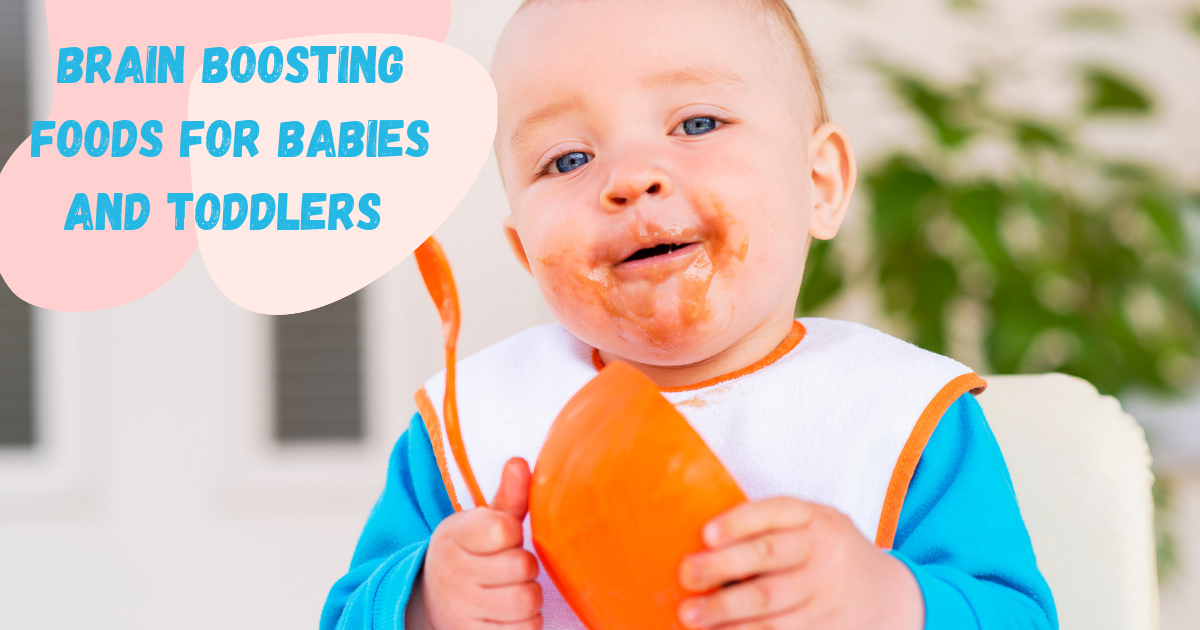Brain Boosting Foods for Babies and Toddlers

The brain development of babies and toddlers is crucial for their future growth and learning capabilities. As a parent, you want to ensure that your child’s brain is getting the necessary nutrients to support its growth and function. In this article, we will discuss the various brain-boosting foods that you can incorporate into your child’s diet to give them the best start in life. From omega-3 fatty acids to iron, we will explore the key nutrients and foods that support healthy brain development and help lay the foundation for a bright future.
Here are some food items that can boost brain development in babies and toddlers:
Breast milk or formula – this provides essential nutrients for the brain’s development.
Iron-rich foods – iron is essential for cognitive development, sources include meats, poultry, fish, legumes, and fortified cereals.
Fatty acids – omega-3 fatty acids are important for brain growth and can be found in fish, nuts, and seeds.
Whole grains – provide carbohydrates, which is the brain’s primary source of fuel.
Fruits and vegetables – high in vitamins and minerals essential for brain function.
Eggs – contain choline, a nutrient important for memory and brain development.
It is recommended to feed babies and toddlers a varied and balanced diet to ensure they receive all the necessary nutrients for proper growth and development.
More healthy foods for babies:
- Pureed or mashed fruits (such as bananas, peaches, and apples)
- Pureed or mashed vegetables (such as potatoes, carrots, and peas)
- Soft, cooked grains (such as rice, oatmeal, and barley)
- Well-cooked and pureed meat (such as chicken, beef, and turkey)
- Small amounts of unsweetened yogurt and cottage cheese
It’s recommended to introduce solid foods to babies gradually, starting at around 6 months of age, while continuing to breastfeed or offer formula. Additionally, it’s important to avoid certain foods that can pose a choking hazard or harm their health, such as honey, nuts, and certain types of fish.
Here are some tips that can help you encourage your baby to eat healthy food:
- Introduce a variety of foods: Offer a variety of healthy options, including fruits, vegetables, whole grains, and lean proteins.
- Lead by example: Children learn by observing those around them, so be sure to model healthy eating habits yourself.
- Get them involved: Allow your child to help with meal preparation and grocery shopping to increase their interest and investment in healthy eating.
- Don’t force it: Don’t pressure your child to eat or restrict certain foods. Offer healthy options, but let them decide how much to eat.
- Make mealtime pleasant: Establish a relaxed and enjoyable atmosphere during mealtimes, free from distractions like television.
- Be patient: It can take time for a child to adjust to new foods, so be patient and offer them repeatedly.
Remember, every child is different and may have their own preferences and pace for trying new foods. It’s important to be supportive and encouraging and to avoid any pressure or coercion.








